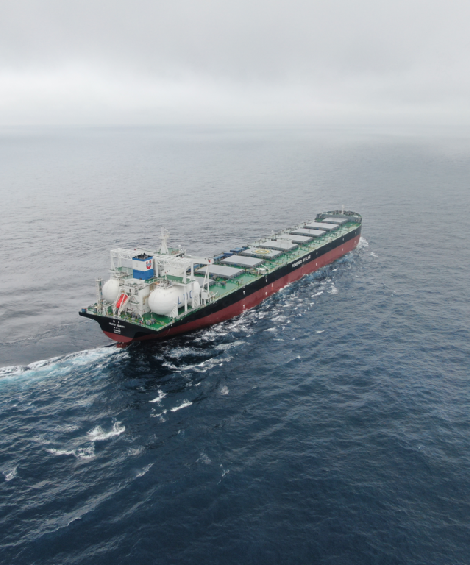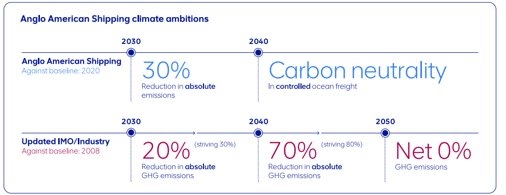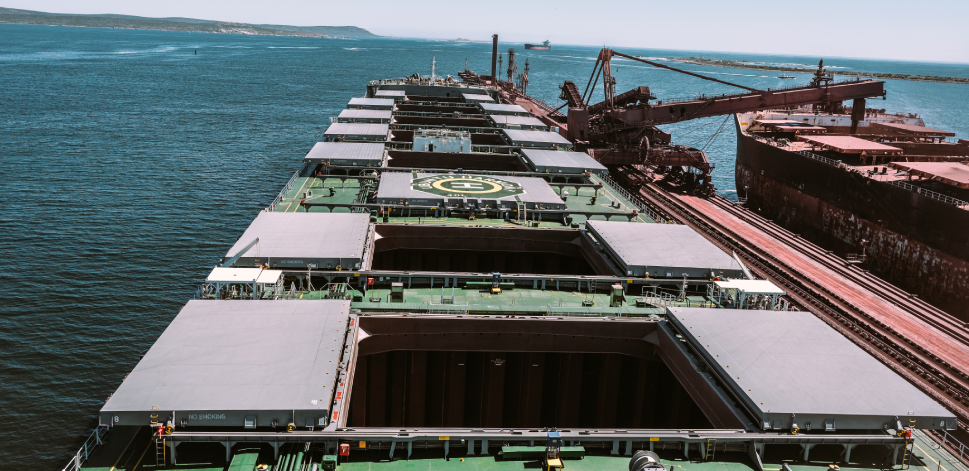
Our commitment is articulated across a comprehensive framework of medium and long term, diverse and complementary measures culminating in our ambition to reach carbon neutrality across our controlled ocean freight activities by 2040, with an interim 30% reduction in emissions by 2030.
These efforts are born from the goals and commitments set out in the Anglo American Sustainable Mining Plan which outlines our target to achieve carbon neutrality across all our operations by 2040, and our Group's ambition to reduce Scope 3 emissions – or emissions in our value chains – by 50% by 2050
Anglo American has set an ambition to achieve carbon neutrality across our controlled ocean freight activities by 2040, with an interim 30% reduction in emission by 2030.


Alternative marine fuels have an important role to play in the decarbonisation journey, with a number of potential options being explored – from liquefied natural gas (LNG) and biofuel, to hydrogen and ammonia.